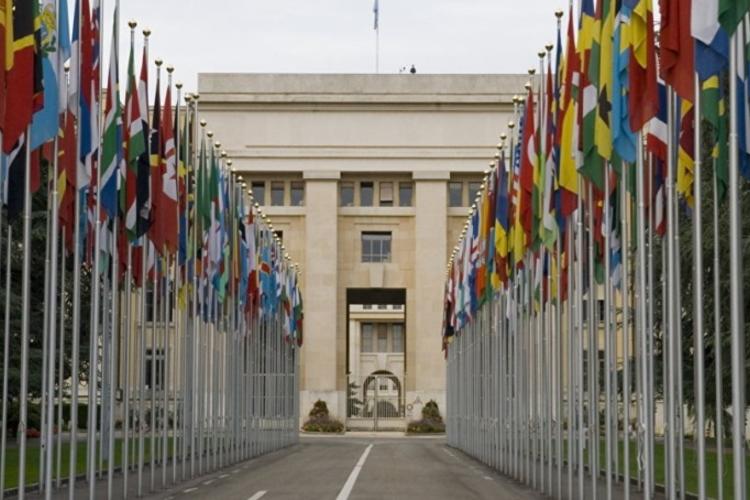On June 29-30, 2021, another round of the International Discussions on Security in the Transcaucasia took place in Geneva. It was attended by delegations from the Republic of South Ossetia, the Republic of Abkhazia, Georgia, the Russian Federation, the United States, as well as representatives of the EU, UN and OSCE. The South Ossetian delegation was headed by the Plenipotentiary Representative of the President for post-conflict settlement M.K. Dzhioev.
The work took place in two working groups: on security and humanitarian issues. In the working group on security in accordance with the Medvedev-Sarkozy agreements, the main attention was paid to ensuring guarantees of non-renewal of Georgia's aggression against South Ossetia and Abkhazia, in particular, consultations were continued on the preparation of a legally binding document on the non- use force or the threat of force, which has international guarantees. The South Ossetian delegation gave a detailed rationale for the need to adopt such a document, which should become an important step to ensure durable security guarantees for South Ossetia and Abkhazia from Georgia and to strengthen the existing structure of regional security.
During the discussion of security issues, the delegation of the Republic of South Ossetia drew the most serious attention of the rest of the participants to the situation in the border areas as a result of the deployment of a fortified post of Georgian police on the territory of South Ossetia near the village of Uista (Tsnelis). It was noted that the provocative actions of the Georgian side are perceived as a deliberate escalation of tension and have an extremely negative effect on the possibility of maintaining and strengthening a stable and secure situation along the entire perimeter of the South Ossetian state border.
The participants noted the absence of serious incidents and relative stability. At the same time, the provocative direction of the actions of the Georgian side to whip up information tension was noted. The South Ossetian representatives again recalled the proposal of the authorities of the Republic of South Ossetia to begin work on the delimitation and demarcation of the state border between South Ossetia and Georgia on a bilateral basis.
The participants noted the usefulness and expediency of continuing the work of the IPRM in the region of the South Ossetian-Georgian border, operating within the framework of the GID. The effectiveness of the operation of the “hot line” under the IPRM was emphasized.
Representatives of South Ossetia and Abkhazia expressed serious concern over the new steps towards Georgia’s integration into NATO and the creation of infrastructure facilities of the Alliance on Georgian territory. The intensification of Georgia's interaction with NATO cannot but cause concern against the background of the stubborn reluctance of the Georgian authorities to commit themselves to the non-use of force against the Republic of South Ossetia and the Republic of Abkhazia and Georgia's lingering claims over their sovereign territories.
A detailed conversation took place on humanitarian issues, among which questions about the fate of the missing took an important place, as well as further measures to clarify their destiny. The South Ossetian side pointed to the ongoing sabotage of the investigation of the cases of enforced disappearance of Ossetians by the Georgian authorities and called on international mediators to put pressure on Georgia.
In connection with the adoption of the resolution on refugees by the UN General Assembly presented by Georgia, the South Ossetian and Abkhaz participants issued a joint statement, which noted that the politicized resolution not only cannot help to improve the situation of refugees from Georgia, South Ossetia and Abkhazia, but closes the opportunity to discuss the problem of refugees in the format of the Geneva Discussions. A constructive discussion of the topic of refugees will become possible if Georgia refuses to politicize artificially this problem.
Once again, the most serious attention was drawn to the gross violations by Georgia of the rights of the Ossetians - natives of the historical part of Ossetia (Tyrsygom, Kudycom and the Kob hollow), which fell under the jurisdiction of Georgia, who for several years have not been able to gain access to their ancestral villages, to their homes and land plots, resting places of many generations of ancestors and to their ancient shrines. They also pointed to the facts of gross arbitrariness and violation of the property rights of the Ossetians. The actions of the Georgian authorities were regarded by the South Ossetian participants as a gross and cynical violation of fundamental human rights.
An information session on comprehensive security issues was also held as part of the 53rd round of the discussions.
The next meeting in Geneva is scheduled for October 2021.
Geneva, 1 July 2021
